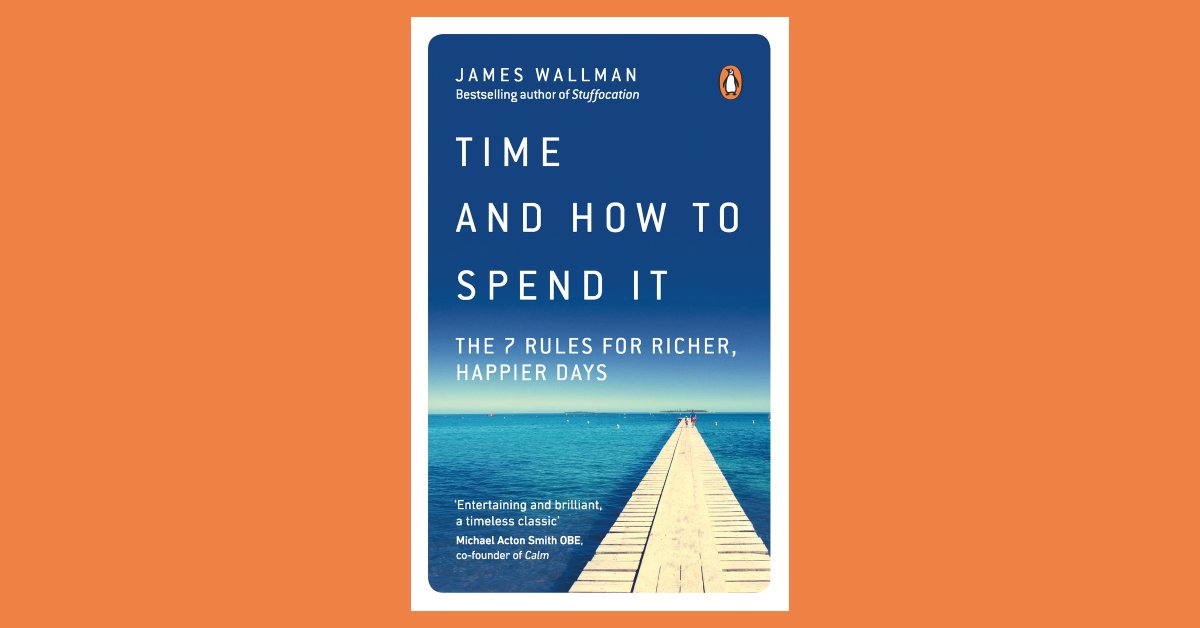
Translating…
Within the 2010s, we haunted about too a lot stuff. A rising consciousness of consumerism’s assemble on the atmosphere and a desire to broadcast our lives on social media led us to prioritize abilities over issues, and tens of millions turned to Marie Kondo and minimalism. Now we’ve began to misfortune about one thing original: too minute time.
Psychologists possess found out that experiences are more doubtless than fabric goods to ship happiness–one other reason we were remark material to shed anything else that didn’t spark pleasure–however needless to mumble we need to assemble selections about which experiences to pursue. The misfortune of creating the execrable one, and therefore squandering precious time, is one thing many other folks feel deeply.
There’s some irony to this predicament: Now we possess more free time now than we now possess got had in a long time. Nonetheless for a more than just a few of causes, it doesn’t feel that capacity.
In his 2019 e book Spending Time, Daniel S. Hamermesh explains that while our existence spans possess gotten a piece longer–13% since 1960–our spending energy has surged by 198%. “It makes it sophisticated to stuff your complete issues that we decide on and could per chance presumably presumably now come up with the cash for into the rising, however increasingly more rather a lot more restricted, time that we now possess got on hand to plan end and to abilities them over our lifetimes,” he writes.
Join Interior TIME.Be the foremost to gape the original conceal of TIME and receive our most compelling stories delivered straight to your inbox.

Thanks!
For your security, we now possess sent a affirmation electronic mail to the take care of you entered. Click on the hyperlink to substantiate your subscription and inaugurate receiving our newsletters. Whenever you originate no longer receive the affirmation interior 10 minutes, please take a look at your tell mail folder.
Next, there’s our cell-mobile phone addiction. American adults utilize around 3½ hours on their devices on a standard basis, making an strive to maintain up with the amount of emails, texts, social-media updates and 24/7 files. And a long way of our time is “depraved time”–after we’re doing one factor however pondering one thing else. Trying to receive more miles out of every minute–scanning Twitter while staring at TV, as an example–makes us mediate we’re being productive, however basically it correct makes us feel more frazzled.
Add to this the ever rising alternatives in this day’s abilities economy. Mediate of your complete pop-ups, plays, talks, workshops and receive away rooms you need to per chance presumably presumably presumably also move to tonight.
No wonder many other folks suffer from what psychologists name “time famine.” No wonder we’re seeing books about reclaiming our time, worship Brigid Schulte’s Overwhelmed and Jenny Odell’s Bring collectively out how to Establish Nothing, and about loosening the grip of cell phones, worship Adam Alter’s Irresistible, Nir Eyal’s Indistractable and Cal Newport’s Digital Minimalism.
There possess been calls to rein in the dignity economy, worship Tristan Harris’ Time Smartly Spent swagger, however the factors that assemble us feel time-heart-broken aren’t going away anytime soon. Tech corporations, for event, could per chance presumably presumably also goal possess constructed apps to repeat you how a lot time you utilize on your instrument, however their industry items count on your persisted use.
These that feel strapped for time most steadily are usually fervent or downhearted. They are much less liable to sigh or be pleased wholesome meals. And they’re much less productive at work. It is a long way good then that there’s been rising hobby from psychologists in the most life like seemingly programs to utilize our time. (Present Notion in Psychology’s April 2019 edition turned into once simply known as “Time.”)
In my fill writing on the topic, I basically possess reach to characterize experiences as “junk meals” or “superfood.” Junk? Spending too a lot time indoors, alone, scrolling Fb or staring at TV. Superfood? Getting offline and outside and, as UCLA affiliate professor of marketing Cassie Mogilner Holmes notes in her 2019 paper “It’s Time for Happiness,” doing issues for or with others and staying filled with life.
Obviously, these experiences require that we basically receive break day–no longer easy in a culture obsessed with productiveness. Despite every little thing, 55% of Americans don’t use all their paid shuttle time. Nonetheless researchers divulge each so continuously it’s about reframing how we possess leisure actions. Columbia’s Silvia Bellezza, Harvard’s Anat Keinan and Georgetown’s Neeru Paharia possess found out that a “purposeful alibi” could per chance presumably presumably also goal be helpful: we’re more liable to transfer tenting if we acknowledge this could well even be correct for our productiveness at work. In an identical trend, Keinan and Columbia’s Ran Kivetz possess seen that we continuously proceed for “collectible experiences” that give us a story to repeat and help accomplish our “experiential CV,” as we worship to feel we’re conducting one thing. They possess also argued that while we continuously mediate we’re being virtuous by picking work over leisure, in the very long time length we’re liable to remorseful about this and feel as if we’ve overlooked out on “the pleasures of existence.”
Time is our least renewable resource. No topic the stress our fixation on it could per chance presumably presumably also goal trigger, it’s correct for us to receive into story if we’re using it properly.
Wallman is the author of Time and Bring collectively out how to Exhaust It: The 7 Principles for Richer, Happier Days
This appears to be in the February 10, 2020 pronounce of TIME.
Contact usateditors@time.com.

